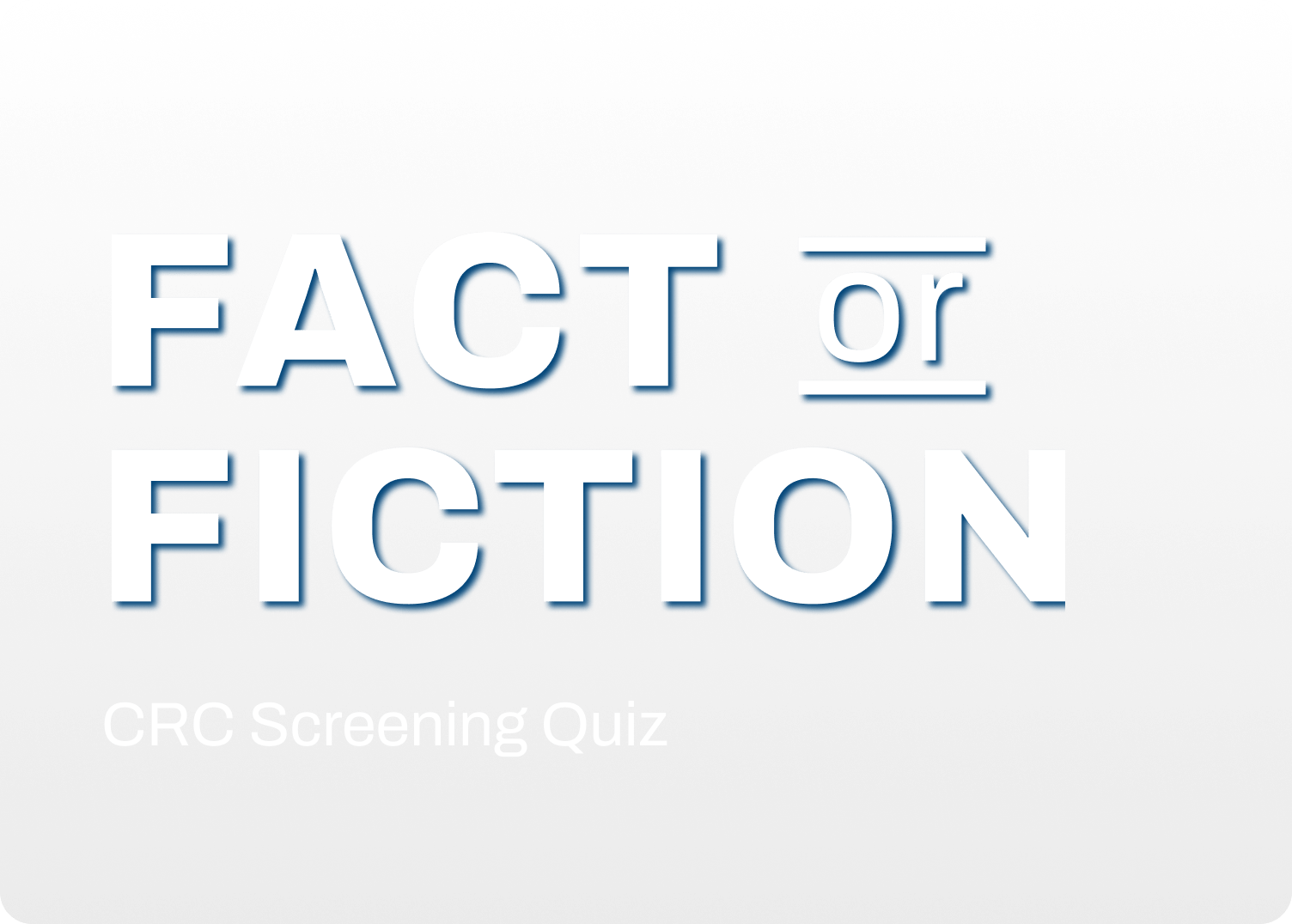Important Information about the Cologuard products
Indications for Use
The Cologuard® and Cologuard Plus™ tests are intended for the qualitative detection of colorectal neoplasia associated DNA markers and for the presence of occult hemoglobin in human stool. A positive result may indicate the presence of colorectal cancer (CRC) or advanced adenoma (AA)/advanced precancerous lesions (APL) and should be followed by a colonoscopy. The Cologuard test and Cologuard Plus test are indicated to screen adults of either sex, 45 years or older, who are at average risk for CRC. These tests are not a replacement for diagnostic colonoscopy or surveillance colonoscopy in high-risk individuals.
Contraindications
The Cologuard products are not for high-risk individuals, including patients who have the following:
- a personal history of colorectal cancer or adenomas
- a positive result from another colorectal cancer screening method within that test’s recommended screening interval
- have been diagnosed with a condition associated with high risk for colorectal cancer such as inflammatory bowel disease (IBD), chronic ulcerative colitis (UC), Crohn’s disease
- have a first-degree family history of colorectal cancer, or certain hereditary syndromes
Patients should talk to a healthcare provider if any of these situations apply.
Warnings and Precautions
All positive results should be referred to colonoscopy.
The Cologuard products may produce false positive and false negative results. A false positive result occurs when a result is positive, even though a colonoscopy will not find CRC or APL. A false negative result occurs when a result is negative, even when a colonoscopy identifies APL or CRC.
A negative result does not guarantee the absence of colorectal cancer or advanced adenoma. Following a negative result, patients should continue participating in a screening program at an interval and with a method appropriate for the individual patient. Performance when used for repeat testing has not been established.
Refer to the Cologuard test Clinician Brochure or the Cologuard Plus test Clinician Brochure for additional information about the benefits and risks of using each version of the Cologuard product for CRC screening.
Rx only.
CRC=colorectal cancer.




